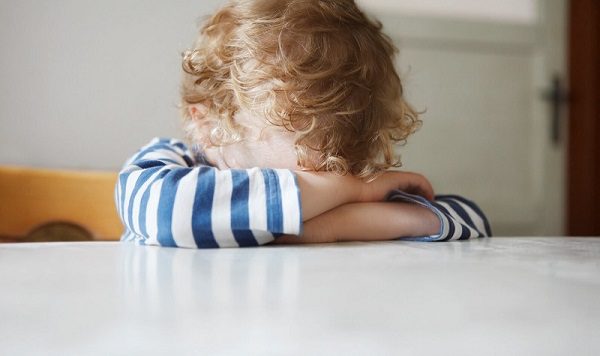
Ask Nicole: When Violence Happens at School
Nicole M. Young, MSW
Our community is still grappling with the tragic, violent death of a high school student on campus. It’s been weeks since it happened and I didn’t know the students involved, but I still get emotional when I imagine the pain of losing a child. Many people responded with compassion, honoring the student who lost his life and donating money to the family. Others shared strong opinions about whether to have more law enforcement or mental health counselors on campus. And some shared their theories about what causes violence in the first place (hint: it’s usually framed as a parenting failure). It left me feeling emotionally raw and heavy, but I’m still hopeful that I live in a caring community that will continue to find creative, effective ways to support the well-being of all children, youth, and families.
This monthly article provides tips for families raising children, based on the world-renowned Triple P – Positive Parenting Program, available to families in Santa Cruz County. If you have a question or idea for a future column, please email triplep@first5scc.org.
Dear Nicole, I’ve been worried ever since the violent incident at my kids’ high school. I worry about their safety but am trying not to let it show. They don’t want to talk to me about it, but I know they’re hearing rumors at school and on social media. How can I be supportive without being pushy? Mariana
Dear Mariana,
Good question. It will take time, but you and other adults can play an important role in restoring a sense of safety and security. Here are a few tips to try with kids of all ages:
Maintain a supportive family environment. Spend quality time with your kids every day. Give them your full attention frequently and consistently, even if it’s briefly. This reassures them that you see and value them and are available during the joyful and challenging times. Give descriptive praise to encourage their efforts and positive behaviors. Be kind and affectionate to teach your kids what healthy, loving communication and relationships look and feel like.
Be available to talk. Calmly ask open-ended questions such as, What have you heard? How do you feel? or Can you say more about that? to gauge what your kids know and how it’s affecting them. If they ask questions, respond with accurate, age-appropriate information. Reassure them all feelings are okay, and they might feel a range of emotions for a while.
Encourage conversations but follow their cues. Children and teens may not want to talk about the incident or their feelings right away (or at all). Continue to look for signs they’re ready to talk or want to process their feelings non-verbally through art, music, writing, or physical activity. They might want to be near you more than usual or have noticeable changes in moods, behaviors, eating, and sleeping. If you’re concerned about their emotional well-being, seek support from a mental health professional at their school or in the community.
Be mindful of your own reactions. Violence is always frightening, but it can be even scarier when it happens unexpectedly in everyday places like school. Children and teens may worry they and their friends are in greater danger, and adults’ reactions will influence how they react. If adults declare that schools are unsafe, express a lack of confidence in school administrators, or make hurtful, judgmental comments about other families in front of their kids, children and teens can end up feeling less safe and more anxious. They might also adopt and repeat the same beliefs, which can perpetuate fear and be hurtful to others.
Discuss a safety plan. Review safety rules for home and school and discuss what to do if they feel unsafe — whether it’s due to a natural disaster, someone who makes them feel uncomfortable, or physical, sexual, verbal, or emotional violence they’ve witnessed or experienced. Help kids identify at least one other adult they can go to for help and support. Encourage your kids to follow their gut instinct and tell an adult if they see or hear something that makes them concerned about their own or others’ safety.
FINAL THOUGHTS: Preventing or handling violence at school is not a simple task that is the sole responsibility of parents and caregivers or of school staff. And there’s rarely one, singular thing that causes violence, which means we need multiple strategies to increase safety and well-being. I hope we can start with listening, empathy, and kindness—at home, in schools, in workplaces, and in the community.
Nicole Young is the mother of two children, ages 17 and 21, who also manages Santa Cruz County’s Triple P – Positive Parenting Program, the world’s leading positive parenting program. Scientifically proven, Triple P is made available locally by First 5 Santa Cruz County, the Santa Cruz County Health Services Agency (Mental Health Services Act) and the Santa Cruz County Human Services Department. To find a Triple P parenting class or practitioner, visit http://triplep.first5scc.org, www.facebook.com/triplepscc or contact First 5 Santa Cruz County at 465-2217 or triplep@first5scc.org.




